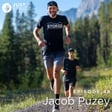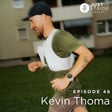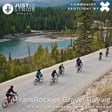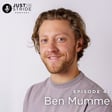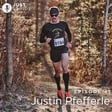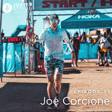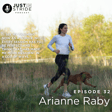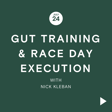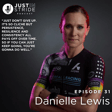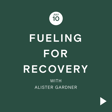
Drew Hunter on his pursuit of the Olympics in Los Angeles, Family balance, coaching Hammer and Axe, personal growth, changing sponsors after 10years, triumphs and challenges of the sport, what it means to be a professional runnerOn today’s episode of Just In Stride, we’re joined by Drew Hunter, a record-breaking distance runner, co-founder of Tinman Elite, and coach at Hammer and Axe Training. From his historic high school performances to his professional career, Drew has continuously pushed the limits of what’s possible in distance running. Beyond his achievements on the track, Drew is also balancing life as a husband and father while pursuing his biggest goal yet—making the next Olympic team. Recently, he made a significant career move by signing with a new sponsor, marking an exciting new chapter in both his athletic and personal journey. In this episode, Drew shares his thoughts on this transition, how he approaches coaching and training, and what it takes to juggle elite competition with family life. His story is a testament to dedication, adaptability, and the ever-evolving pursuit of excellence.
On today’s episode of Just In Stride, we’re joined by Drew Hunter, a record-breaking distance runner, co-founder of Tinman Elite, and coach at Hammer and Axe Training. From his historic high school performances to his professional career, Drew has continuously pushed the limits of what’s possible in distance running.
Beyond his achievements on the track, Drew is also balancing life as a husband and father while pursuing his biggest goal yet—making the next Olympic team. Recently, he made a significant career move by signing with a new sponsor, marking an exciting new chapter in both his athletic and personal journey.
In this episode, Drew shares his thoughts on this transition, how he approaches coaching and training, and what it takes to juggle elite competition with family life. His story is a testament to dedication, adaptability, and the ever-evolving pursuit of excellence.
Hammer & Axe Training (@hammerandaxetraining) • Instagram photos and videos
Drew Hunter (@drewhunter00) • Instagram photos and videos
-------
Offer from Xact Nutrition: This episode is presented by our friends at Xact Nutrition and they are offering you 15% OFF your order when you use the code JUSTINSTRIDE. So head to xactnutrition.com and fuel your goals today! Now shipping in Canada and the U.S.
Thanks for tuning in to the Just In Stride Podcast. I truly appreciate you taking the time to listen and I hope you enjoyed that conversation as much as I did. Please take a minute after this to rate and review our show on Apple Podcasts. With your feedback we’ll be able to make the show even better and it’ll help us reach new listeners too. You can also find us on Instagram @justinstridepod and YouTube @justinstridepod for all the latest episodes and updates. Glad you came along for the ride with Just In Stride!
